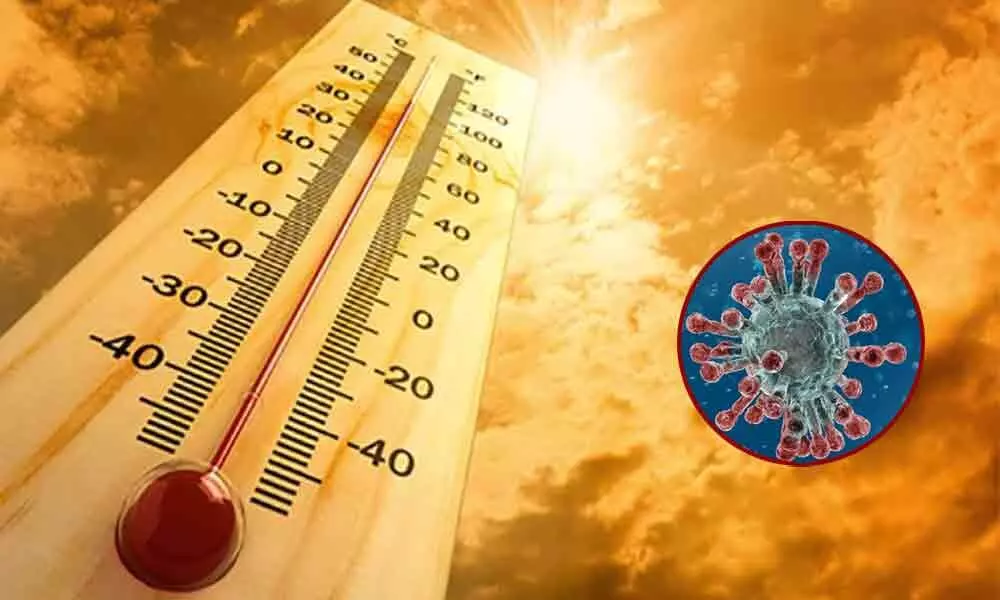Indian Summer may hold a pleasant surprise; could slow down coronavirus spread
 Representational Image
Representational ImageSummers could considerably slow down the transmission of the coronavirus infection in India, according to the country's two high profile microbiologists
The scorching sun in the summers could considerably slow down the transmission of the coronavirus infection in India, according to the country's two high profile microbiologists who have worked with National Institutes of Health(NIH) and the World's largest biomedical research agency located in Maryland, USA.
The Indian microbiologists suggest that during summers, the rising mercury can alter the rate of transmission at which the deadly COVID-19 infects people.
Renowned Indian microbiologist, Professor Y Singh, who worked with NIH and also with the US Army Lab on 'project anthrax' told IANS that an expected temperature of over 40 degrees by the end of April, can slow down the affect of the coronavirus.
"The rise in temperature can alter the rate of transmission of virus, which transfers through any surface or through aerosol to humans. The duration of survival of the virus on any surface would be less when temperature is high. But let me clarify, if a person carries the virus in his body, the outside temperature would then have no affect on the infected person," said Professor Y Singh who has been Chief Scientist at CSIR, Institute of Genomics and Integrated Biology.
Eminent virologist, Dr Akhil C Banerji who had an opportunity to work with legendary infectious disease expert Anthony Fauci of the US, says that if temperature is around 39 or 40 degrees, then it helps in deactivating the virus.
"However, if any person is standing too close to a COVID-19 patient, then he can be at risk of inhaling the virus. Temperature plays a role but still in science every conclusion, every study has to be based on data. We actually require more data on this subject," said Dr Akhil Banerjee, who has been associated with National Institute of Immunology, New Delhi.
Though in depth study of COVID-19 is required to conclude on the effect of the temperature on the virus, research conducted on other types of coronaviruses showed "marked winter seasonality." In simpler words coronaviruses are more volatile between December and April. Several virologists are hinting that by June this year, the impact of COVID-19 would be less than what it appears at present."
Yes, some scientists are talking about June theory which obviously relates to rise in temperature. I have spoken to some of our Chinese collaborators and they told us that its (COVID-19) resistance power cannot tolerate high temperature," Professor Pratyoosh Shukla, former General Secretary of Association of Microbiologists of India(AMI) told IANS.
"Usually all types of viruses including SARS or Flu, have maximum impact from October to March. The reason being that temperature plays an important role in the spread of viruses," said Prof Pratyoosh Shukla.
A detailed study conducted by the Centre for Infectious Diseases, Edinburgh University, found that three types of coronaviruses obtained from patients of respiratory tract infections showed winter seasonality. The viruses, study revealed, seemed to cause infection between December to April, a pattern observed in spread of Influenza. The microbiologists are of the view that there are early hints that COVID-19 may also vary with the seasons. The outbreak of the new virus suggests that it has preferences over cool and dry regions.














